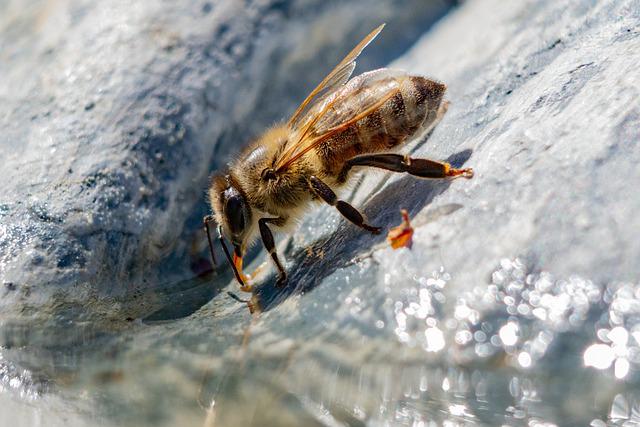Even people who don’t have a degree in biology know that flying insects that live on land have very little in common with fish. Bees are insects and fish are fish. In the wide variety of life, these are two areas that are anything but closely related. In this case, no one would think of claiming that bees are even remotely related to fish or even fish themselves, right?

Well, as absurd as it may sound, a California court has now ruled exactly that: bees can now legally be considered fish. At least according to California law. How this strange ruling came about and why it even makes sense requires some explanation.
In this particular case, it is actually not about bees, but about bumblebees. Why the headlines are all about bees is explained as follows: bumble bees and bees are often lumped together in English-speaking countries. Both bumblebees and bees are colloquially referred to as bees. For many English speakers, bumblebees are a type of bee. However, since the court ruling is a landmark decision, the new case law not only affects bumblebees but also bees (and many other species as well). So in this case we sure can talk about bees.
The said ruling, which was released on May 31, 2022, overturned an earlier ruling that found bumblebees were not considered a protected species under the California Endangered Species Act. The background is that the wording of this regulation only provides for the protection of „native species or subspecies of a bird, mammal, fish, amphibian, reptile, or plant.“. Insects and other invertebrates (which also includes bees and bumblebees) are not included in this list and have therefore not been included in the list of species protected under this regulation. At least up to now.
The California court however has now ruled that bumblebees fall within the definition of „fish“ under that regulation and can therefore be included in the list of protected species. The Court argued as follows: The regulation itself defines the term “fish” as 
„a wild fish, mollusk, crustacean, invertebrate, amphibian, or part, spawn, or ovum of any of those animals“
Since insects (and thus also our bees and bumblebees) are also invertebrates, they clearly fall under the definition of fish described in the regulation itself, according to the court in its reasoning.
With that decision, the California court overturned a previous ruling by the Sacramento District Court from 2020 that had ruled that this definition in the regulation only applied to marine creatures. Invertebrates could therefore only be considered fish for the purposes of this regulation if they lived in water.

While the 2020 decision clearly makes more sense from a logical point of view, the ruling however is definitely the more sensible one ecologically. The background to all the legal confusion and the somewhat strange ruling was a petition from 2018 that demanded that 4 endangered bumblebee species in California shall be included in the list of protected species in order to obtain special legal protection. The decision of the previous court back than meant that the local authorities lacked the legal basis to enforce this special protection. Their hands were tied.
With the new ruling from California, the endangered bumblebee species can now get the protection they need on a solid legal basis. Furthermore, this ruling also opens up the possibility that further species of terrestrial invertebrates can be included in the future if necessary. For it is clear after this ruling: All invertebrates are fish enough to be legally considered fish, even if they live on land and are actually not fish but insects.
Text: Fabian Kalis
Images: www.pixabay.com
Sources: https://edition.cnn.com/2022/06/06/us/california-bees-fish-court-ruling-scn-trnd/index.html
https://www.reuters.com/legal/litigation/who-knew-bees-are-fish-2022-06-02/